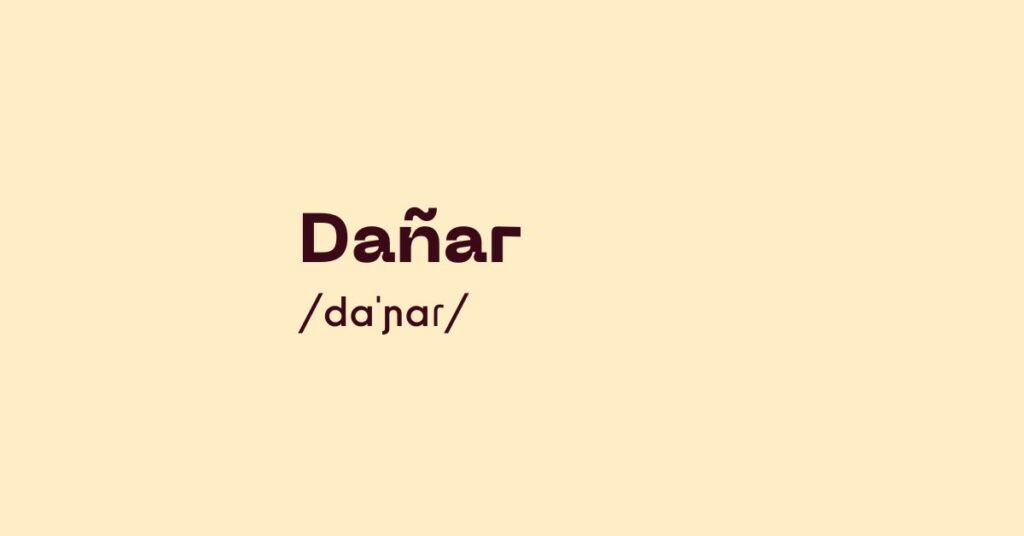Today’s Spanish word of the day is “dañar.”
It’s a verb meaning “to damage” or “to harm”. It can be used to refer to both physical damage as well as psychological hurt.
Another way to talk about damage is to use the noun “daño” (“damage”), which is related to the verb dañar. This word can be used in verb phrases such as “hacer daño”, which literally means “to do damage”.
The word “dañar” comes from the Latin damnare, meaning “to condemn” or “to harm”. This is also the root of several English words, including “damn”, “damage”, and “condemn.”
“Dañar” is a regular verb, so it follows standard conjugation patterns. Here’s how it’s conjugated in the present tense:
- Yo daño – I damage
- Tú dañas – You damage (informal singular)
- Él/Ella/Usted daña – He/She damages, You damage (formal singular)
- Nosotros/Nosotras dañamos – We damage
- Vosotros/Vosotras dañáis – You damage (informal plural, only used in Spain)
- Ellos/Ellas/Ustedes dañan – They damage, You damage (plural)
Example sentences
¡Ten cuidado o lo dañarás!
Be careful or you’ll damage it!
El viento fuerte dañó varias casas en la zona.
The strong wind damaged several houses in the area.
¿Realmente quieres dañar tu reputación por algo tan trivial?
Do you really want to damage your reputation over something so trivial?
El agua puede dañar la madera si no se seca rápidamente.
Water can damage wood if it’s not dried quickly.
No quiero dañar tu coche.
I don’t want to damage your car.

